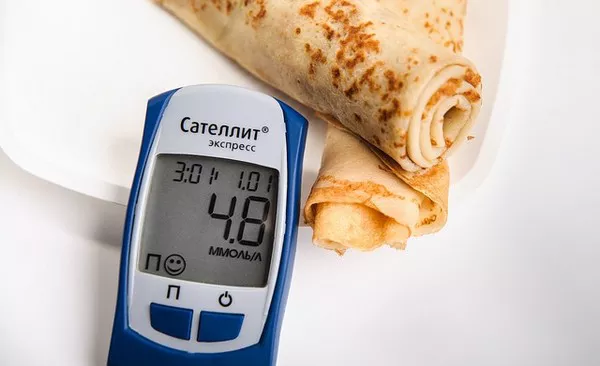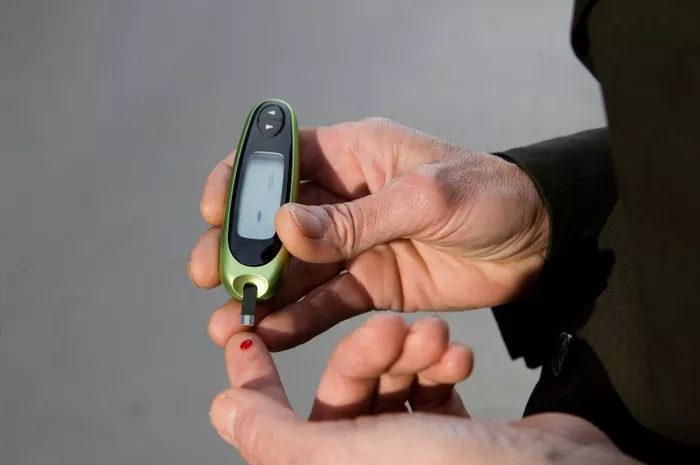Understanding Hypoglycemia
Hypoglycemia occurs when blood glucose levels fall below normal, typically less than 70 mg/dL (3.9 mmol/L). It can lead to various symptoms and, if severe, can be life-threatening.
Causes of Hypoglycemia
Several factors can contribute to hypoglycemia, including:
- Medication: Insulin and some oral diabetes medications, such as sulfonylureas and meglitinides, can cause blood sugar levels to drop too low.
- Diet: Skipping meals, eating less than usual, or consuming alcohol without food can lead to hypoglycemia.
- Exercise: Physical activity increases insulin sensitivity and glucose utilization, potentially leading to low blood sugar.
- Illness: Certain illnesses, particularly those affecting the liver or kidneys, can disrupt glucose production and regulation.
- Stress: Both physical and emotional stress can impact blood sugar levels.
Symptoms of Hypoglycemia
Common symptoms of hypoglycemia include:
- Shakiness
- Sweating
- Rapid heartbeat
- Hunger
- Irritability or mood changes
- Confusion
- Dizziness or lightheadedness
- Headaches
- Blurred vision
- Weakness or fatigue
Severe hypoglycemia can lead to more serious symptoms, such as:
- Seizures
- Loss of consciousness
- Coma
Recognizing these symptoms is crucial for prompt treatment and prevention of severe hypoglycemia.
When to Check Blood Sugar for Hypoglycemia
Monitoring blood sugar levels is essential for managing diabetes and preventing hypoglycemia. Knowing when to check your blood sugar can help you detect and address low blood sugar episodes before they become severe.
1. Before Meals
Checking your blood sugar before meals provides a baseline reading and helps you determine if your blood sugar is within target range. If your blood sugar is already low before eating, you may need to adjust your meal or medication to prevent further drops.
2. Before Physical Activity
Exercise increases insulin sensitivity and glucose utilization, which can lead to hypoglycemia. Checking your blood sugar before starting physical activity helps ensure that your levels are safe for exercise. If your blood sugar is low, you can consume a small snack to raise it before exercising.
3. During Physical Activity
For prolonged or intense exercise, checking your blood sugar during the activity is important to prevent hypoglycemia. This is particularly crucial for individuals with type 1 diabetes or those on insulin therapy. Carry a glucose meter or continuous glucose monitor (CGM) with you and test your blood sugar at regular intervals.
4. After Physical Activity
Physical activity can continue to affect blood sugar levels for several hours after exercise. Checking your blood sugar after exercising helps you monitor for delayed hypoglycemia and take appropriate action if needed.
5. At Bedtime
Checking your blood sugar before going to bed is essential to ensure that your levels are stable overnight. If your blood sugar is low at bedtime, consuming a small, balanced snack can help maintain stable levels while you sleep.
6. During the Night
Nocturnal hypoglycemia is a common concern for individuals with diabetes, especially those on insulin therapy. If you experience symptoms of low blood sugar during the night, such as sweating, nightmares, or waking up feeling shaky, it’s important to check your blood sugar. Using a CGM can also help detect nighttime hypoglycemia by alerting you to low blood sugar levels.
7. When You Feel Symptoms of Hypoglycemia
Always check your blood sugar if you experience symptoms of hypoglycemia. Prompt testing allows you to confirm low blood sugar and take immediate action to raise your levels.
8. After Treating Hypoglycemia
After consuming a fast-acting carbohydrate to treat hypoglycemia, it’s important to recheck your blood sugar after 15-20 minutes. This ensures that your blood sugar has risen to a safe level. If your blood sugar is still low, repeat the treatment and recheck until your levels stabilize.
9. During Illness
Illness can affect blood sugar levels and increase the risk of hypoglycemia. Check your blood sugar more frequently when you are sick, especially if you have reduced appetite or are unable to eat normally.
10. When Adjusting Medications
If you are starting a new diabetes medication or adjusting your current dosage, monitor your blood sugar more frequently. This helps you identify any potential side effects, including hypoglycemia, and make necessary adjustments to your treatment plan.
11. When Fasting
Fasting for religious or medical reasons can affect blood sugar levels. Monitor your blood sugar closely during fasting periods to prevent hypoglycemia. Consult with your healthcare provider before fasting to develop a safe plan.
Preventing and Managing Hypoglycemia
Preventing hypoglycemia involves careful planning, regular monitoring, and understanding how various factors affect your blood sugar levels. Here are some strategies to help prevent and manage hypoglycemia:
1. Plan Your Meals
Regular, balanced meals and snacks help maintain stable blood sugar levels. Include a combination of carbohydrates, proteins, and fats in each meal to provide sustained energy. Avoid skipping meals, and carry healthy snacks with you to prevent drops in blood sugar.
2. Monitor Blood Sugar Regularly
Frequent blood sugar monitoring helps you detect and address low blood sugar before it becomes severe. Use a blood glucose meter or CGM to track your levels throughout the day and adjust your treatment plan as needed.
3. Adjust Medication as Needed
Work with your healthcare provider to adjust your medication regimen based on your blood sugar patterns. This may include changing the timing, dosage, or type of medication to better match your lifestyle and prevent hypoglycemia.
4. Be Cautious with Alcohol
Alcohol can lower blood sugar levels and increase the risk of hypoglycemia. Drink alcohol in moderation and always consume it with food to prevent drops in blood sugar. Monitor your blood sugar closely if you choose to drink.
5. Stay Prepared
Carry fast-acting carbohydrates with you at all times to treat hypoglycemia. Examples include glucose tablets, juice, regular soda, or hard candies. Educate your family, friends, and coworkers about how to recognize and treat hypoglycemia.
6. Wear Medical Identification
Wearing a medical alert bracelet or necklace can provide critical information to others in case of a hypoglycemic emergency. This is especially important if you experience severe hypoglycemia and are unable to communicate your condition.
7. Educate Yourself and Others
Understanding the causes, symptoms, and treatment of hypoglycemia empowers you to manage your condition effectively. Educate those around you about hypoglycemia, so they can support you in case of an emergency.
8. Use Technology
Consider using a CGM to monitor your blood sugar levels continuously. CGMs can provide real-time data and alerts for low blood sugar, helping you take immediate action. Some CGMs can also share data with your healthcare provider for better management.
9. Develop a Sick-Day Plan
Work with your healthcare provider to develop a plan for managing your blood sugar during illness. This may include more frequent monitoring, adjusting medication, and maintaining hydration and nutrition.
10. Follow-Up with Healthcare Providers
Regular follow-up appointments with your healthcare provider are essential for managing diabetes and preventing hypoglycemia. Discuss your blood sugar patterns, any episodes of hypoglycemia, and any adjustments needed in your treatment plan.
See also: What to Eat if You Have Hypoglycemia
Conclusion
Hypoglycemia is a serious concern for individuals with diabetes, but with careful monitoring and management, it can be effectively prevented and treated. Knowing when to check your blood sugar is crucial for detecting and addressing low blood sugar levels before they become severe. By understanding the causes and symptoms of hypoglycemia, implementing preventive strategies, and working closely with your healthcare provider, you can maintain stable blood sugar levels and reduce the risk of hypoglycemia.
Remember to monitor your blood sugar before meals, physical activity, and bedtime; during physical activity and illness; and whenever you experience symptoms of hypoglycemia. Stay prepared with fast-acting carbohydrates, wear medical identification, and use technology like CGMs to support your blood sugar management. Regular follow-up with your healthcare provider ensures that your treatment plan is optimized for your needs.
By taking a proactive approach to blood sugar monitoring and hypoglycemia management, you can live a healthier, more balanced life with diabetes.



























